Christmas in the Philippines, by tradition, is a grand affair. Every year, like clockwork, parols, belens, and Christmas trees are set up as early as September. For most Filipinos, exchange gifts are a must, as is Simbang Gabi on the 16th of December and every day after that leading up to Misa de Gallo on Christmas Eve and noche buena at midnight. Those of us who were raised to celebrate a Filipino Christmas think nothing of this phenomenon. Little do we realize that the people we see every day might be spending Christmas differently—far from home and with unfamiliar traditions.
Pinoy roots
Each year, through the Ateneo’s Junior Term Abroad (JTA) program, a batch of our classmates and peers are shipped off to study in foreign lands. While new territory incites homesickness in the best of us, spending Christmas away from close family after years of Filipino traditions may seem to be too much.
Christmas in Japan for instance is not your usual Pinoy celebration. Where a mild drop in temperature is all Manila gets around the holidays, Sapporo, Japan’s snowy winter landscape, provides the perfect backdrop for a sparkling white Christmas. Yet despite the setting and the biting -12°C chill, Japan’s Christmas holiday isn’t a big celebration of lights and sounds.
Senior Aldo Dulay, who spent his JTA in Japan last year, shares of his experience counting down to Christmas in Sapporo’s central park. Their rowdy group of young Filipino tourists stood out among the Japanese couples on holiday. Dulay and his friends were in for a surprise when, after loudly counting down with the park’s clock tower, the lights around them went out. Instead of the fireworks they were expecting, the noisy group was left happily taking pictures in the dark and answering calls from their loved ones back home.
Dulay remarks that while his Christmas holiday in Japan was a bit anti-climatic, their New Year’s experience back in Hokkaido more than made up for it. Marked by loud celebrations and traditional meals, New Year’s in Japan is more reminiscent of Christmas in the Philippines.
While Christmas in a foreign country may make one nostalgic for home, most JTA students see the difference in culture as an opportunity to be independent regardless of the occasion. “Though there was that element of real family missing, I made do with the people I had. Having already spent two or three months with the ten Filipinos I was with, we pretty much became our own family,” says Dulay.
A different home
Ateneo’s diverse student population includes kids whose parents live and work abroad. As Filipinos living in a foreign country, their families had to assimilate and adjust to different Christmas traditions while keeping the spirit alive.
Freshman Megan Villanueva shares that her Christmas days in San Francisco comprised of eating Chinese food and watching new movie releases, because those were the only establishments open during the holiday. And while the climax of a Filipino year seems to be reached at the 25th of December, Christmas in the States is less of a big deal because of the other holidays that surround it. Having lived in Guam, another freshman, Joanna Ulatan, admits to not being used to the lack of big celebrations for Halloween and Thanksgiving before Christmas.
An understated Christmas, though, is better than no Christmas at all. Freshman Lite Villanueva spent most of his years in Jeddah, Saudi Arabia, where celebrating Christmas is practically forbidden, due to the country’s strict implementation of Islamic law. Nevertheless, Villanueva shares that Christmas was still very important for the Christian Filipinos living in the area. “We celebrated just inside the house by exchanging gifts and putting up decorations and a Christmas tree,” he shares.
For these students, finally celebrating Christmas in the Philippines is both novel and familiar. Despite acquiring foreign customs, the concept of noche buena and close family ties is still very much alive in these students’ families. Ulatan shares that it was her family’s tradition to eat dinner at midnight on Christmas Eve regardless of their Americanized lifestyle.
Through new eyes
Everyday, Ateneo’s foreign exchange students walk, eat and learn amongst their Filipino counterparts. These students have in fact become a typical sight on campus.
Similarly, the normalcy of a Filipino Christmas has made us less appreciative of the unique way we celebrate the occasion. To those of us whose families really stick to tradition every year, it may even get boring. But for our foreign classmates and friends, Christmas in the Philippines is something out of the ordinary.
For one thing, the early celebrations catch them off guard. Christmas songs aired as early as September and cab drivers greeting you a merry Christmas in November aren’t exactly customary in other countries. “What I found interesting is that the Filipino [Christmas] starts some time in September… This is really unusual. In Germany, we have the tree up on the 23rd of December,” shares junior exchange student Benjamin Brockfeld.
For all our early merrymaking though, many exchange students don’t feel Christmas in the air—literally. The temperature drop in the Philippines is near imperceptible to the foreign exchange students used to snowy Christmases in temperate countries like Germany, Korea and Japan. Nonetheless, the Philippines’ relatively warmer temperatures during Christmas are what “makes it special,” remarks Judith Meier.
While some may find our early festivities peculiar, French student Binta Badji feels that this shows how the spirit of Christmas is very much alive among Filipinos. She shares, “In France, [Christmas is] kind of commercial, but here it’s really in the culture and people really mean it.”
Crossing borders
Whether through grand parties or quiet family affairs, Christmas is celebrated all over the world. And despite the distance and lack of conventional celebrations, year after year, these students still manage to revel in the spirit of Christmas. Perhaps it’s the fact that technology today can surpass the challenge of distance from the place they call home, or that good food will always make an occasion feel like a party, be it ramen at a random Japanese restaurant, the Filipino favorite lechon, or Chinese takeout.
But really, no matter where we are in the world, that warm, fuzzy feeling of spending Christmas with loved ones—family or otherwise—will always be the same.
With reports from Nadine Y. Ramos
- Photo by Jessica L. Roasa
- Photo by Jessica L. Roasa
- Photo by Christella B. Soriano
- Photo by Jessica L. Roasa
- Photo by Christella D. Soriano
- Photo by Christella D. Soriano
- Photo by Christella D. Soriano
- Photo by Christella D. Soriano
- Photo by Christella D. Soriano
- Photo by Christella D. Soriano
What do you think about this story? Send your comments and suggestions here: tgdn.co/2ZqqodZ

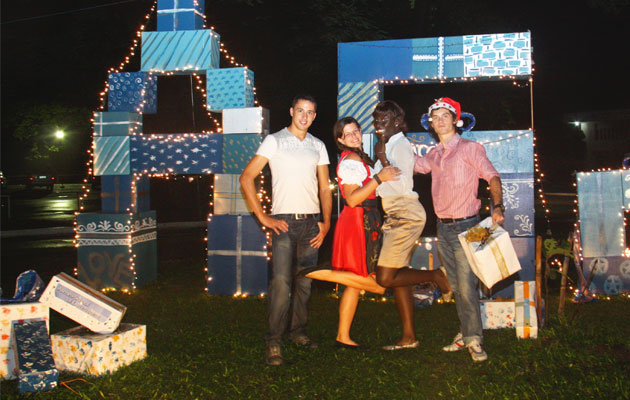



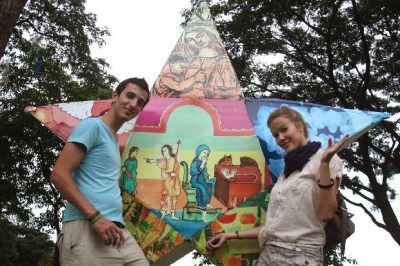
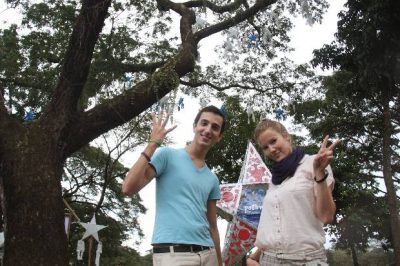

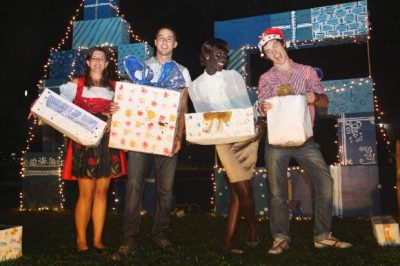
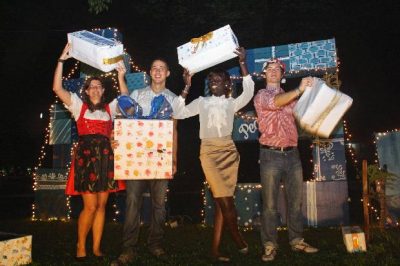
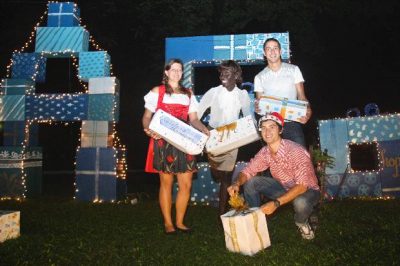









[…] The GUIDON – Christmas in AbsentiaJan 3, 2012 … In Germany, we have the tree up on the 23rd of December,” shares junior exchange student Benjamin Brockfeld. For all our early merrymaking … […]